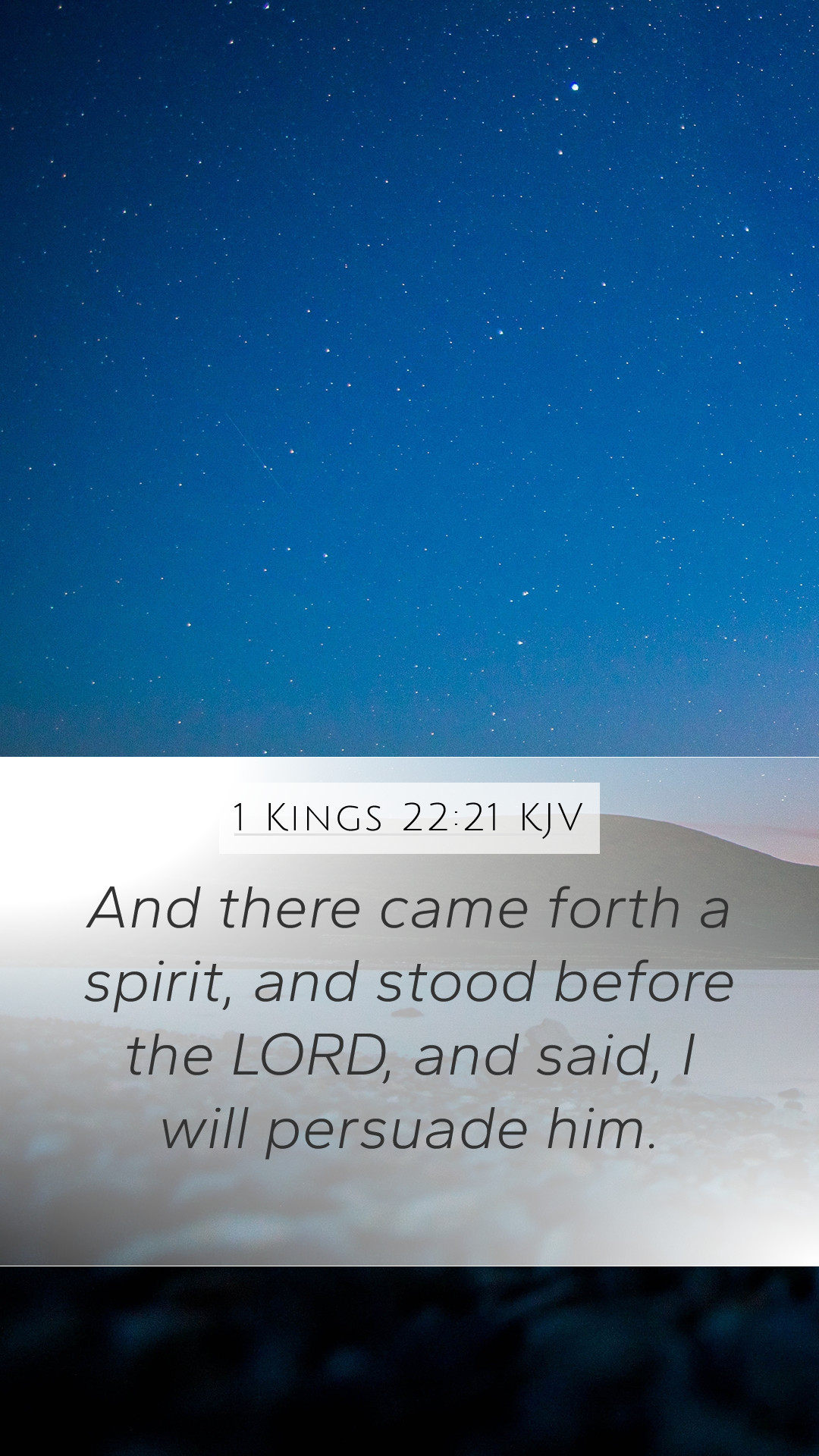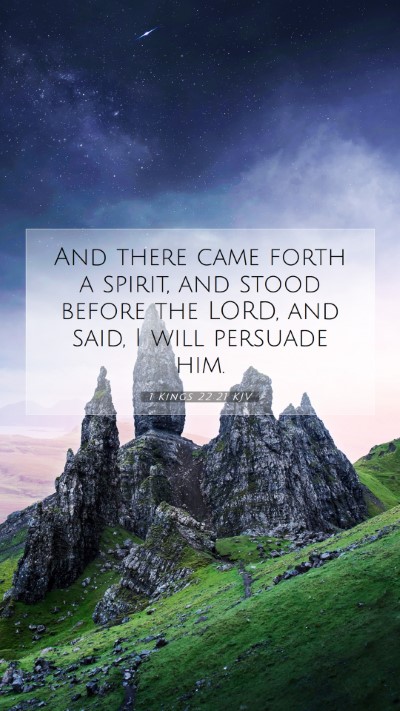Bible Verse Explanation of 1 Kings 22:21
The verse 1 Kings 22:21 recounts a critical moment in the narrative involving the prophet Micaiah. In this context, Micaiah professes to hear a divine council in heaven, presenting the idea that God permits a lying spirit to influence Ahab. Understanding this verse is essential for grasping the theological implications of divine sovereignty, human agency, and the complexities of prophetic ministry.
Summary of Biblical Interpretation
The combined insights from public domain commentaries provide a multi-faceted understanding of this passage. This analysis revolves around the themes of divine guidance, the role of prophets, and the struggles within Israel’s monarchy. Below are the interpreted aspects according to various Bible commentators.
Insights from Matthew Henry
-
Divine Sovereignty:
Matthew Henry notes that God is sovereign over all spiritual beings and that even evil spirits operate under His authority. The lying spirit, therefore, is seen as a tool permitted by God to fulfill His ultimate plan regarding Ahab's downfall.
-
Prophetic Role:
Micaiah serves as a true prophet amidst falsehood, conveying God’s message despite opposition. Henry emphasizes the importance of discerning true prophecy from falsehood, hinting at the broader applications in spiritual discernment today.
Insights from Adam Clarke
-
Heavenly Counsel:
Adam Clarke elaborates on the concept of a heavenly counsel, where God deliberates with His heavenly court. Clarke highlights that this dramatization serves to illustrate God’s ultimate control over earthly affairs, outlining the complex interaction between divine will and human action.
-
Nature of Deception:
Clarke discusses the nature of the lying spirit and emphasizes God's permissive will. He posits that God allowed the spirit to deceive Ahab, underscoring the moral responsibilities and repercussions of Ahab’s choices and his relationship with truth.
Insights from Albert Barnes
-
Prophetic Authenticity:
Albert Barnes asserts that the contrast between Micaiah and the other prophets emphasizes the fine line between divine truth and human deception. This differentiation serves as a caution for readers to scrutinize prophetic claims critically.
-
Consequences of Rebellion:
Barnes connects Ahab’s rebellion against God to the permissibility of the lying spirit. His insights underscore the theological concept that turning away from divine direction can lead to disastrous outcomes, a vital teaching applicable to followers today.
Theological Implications
The interplay of free will and divine sovereignty emerges as a central theme. The insights presented in these commentaries shed light on how God operates within the framework of human choices, thus providing a foundation for discussing the nature of evil and God's ultimate justice.
Cross-References
- 2 Chronicles 18:20-22 - The account parallels with Ahab's appeal to the prophets.
- Romans 1:24-25 - Discusses God giving people over to their sinful desires.
- Jeremiah 14:14 - Reference on false prophets and their messages.
Applying the Insights
Reflecting on 1 Kings 22:21 provides contemporary believers with critical questions regarding the authenticity of teachings received, the nature of divine guidance, and the consequences of their personal choices. This verse serves as a reminder to actively seek understanding through diligent Bible study and prayer to align oneself more closely with God’s truth.
Conclusion
Through the lenses of these commentaries, readers gain a richer understanding of 1 Kings 22:21 that encourages ongoing exploration of its themes. It invites further study into how the message of this scripture can be interpreted and applied in today’s spiritual context. Such insights enrich Bible study groups, online theological discussions, and personal faith journeys.


